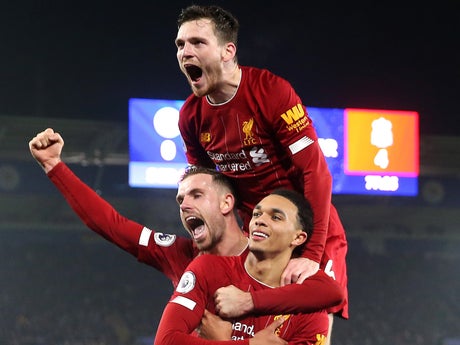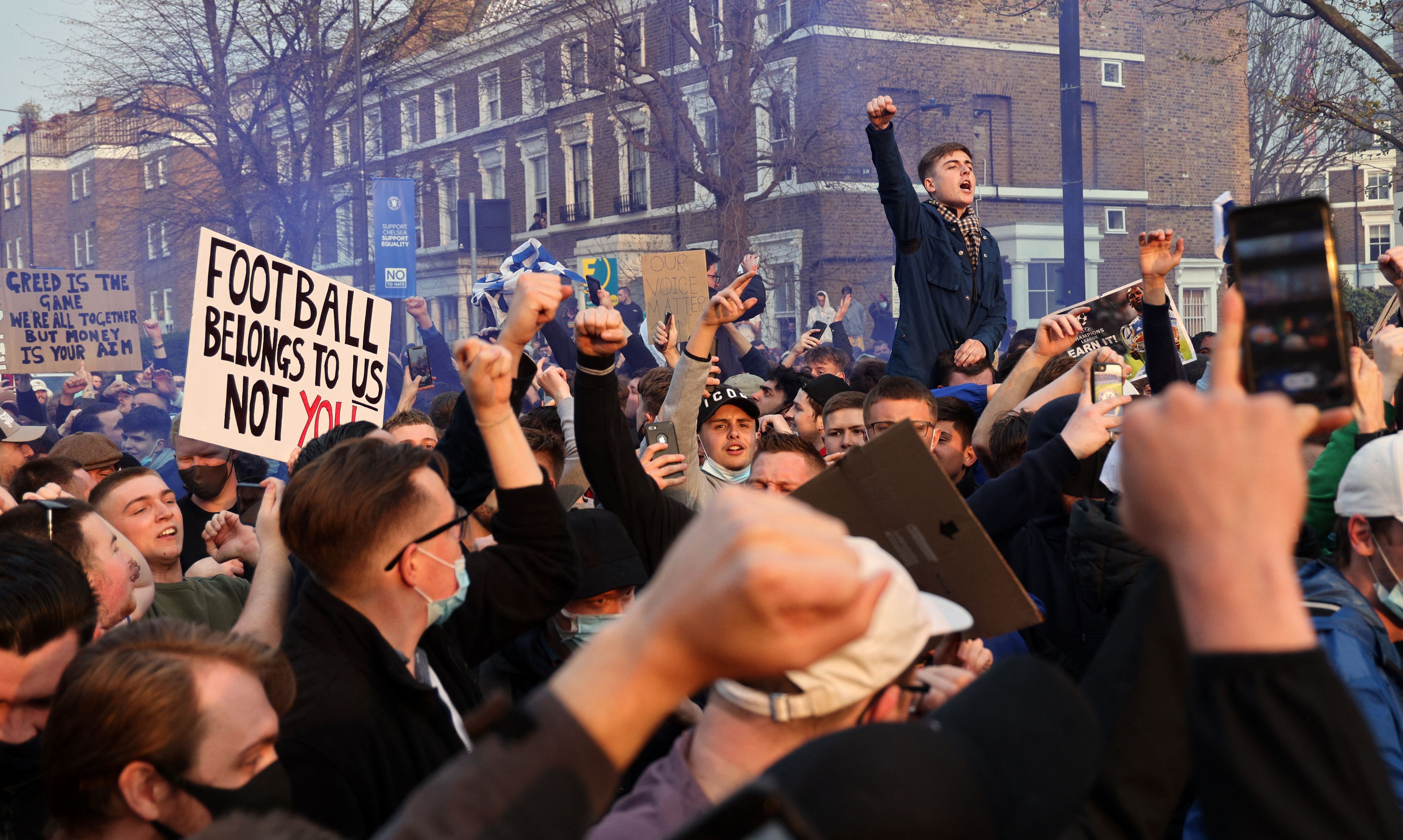
Through an adjusted football landscape of empty stadiums and artificial crowd noise over the past year, we have witnessed a significant change during Covid’s seismic disruption: the empowerment of players.
The latest act was their defiance of The Super League. James Milner was the first footballer of the ‘Big Six’ to be quizzed about his feelings in front of global audience.
The question came less than 24 hours after the news broke, which was when the Liverpool squad first heard about it. The club’s owners, Fenway Sports Group, were one of the key conspirators.
Milner could have easily sidestepped the topic as he had grounds to: not enough information, no time to process the development given he had a pivotal match to prepare for, and ultimately it was one for the hierarchy to answer rather than him.
Instead, he told the truth. “I don’t like it and hopefully it doesn’t happen,” the midfielder said.
“I agree with most of what has been said about it.”
Manchester United’s senior players were so flustered by the Super League announcement, they forced vice-executive chairman Ed Woodward and football director John Murtough to hold a Zoom call offering an explanation.
Captain Harry Maguire, plus the club’s two standout contributors this season in Bruno Fernandes and Luke Shaw, did not conceal their disapproval at breaking away.
The latter went on to post a letter across his social platforms, spelling out his “worry that these changes could impact the sport that I and millions of others love”.
Marcus Rashford, who has already displayed the scale of players discovering the power of their voice by taking on the government and forcing change over child poverty, shared a photograph of a banner on the Stretford End.
The one scrawled with the enduring line that is too often ignored by game’s decision-makers: “Football is nothing without fans.”
Manchester City’s Kevin De Bruynerevealed his distaste for The Super League’s removal of real competition.
Hector Bellerin posted Arsene Wenger’s plea to “take care of the values” of Arsenal.
By 9pm on Tuesday night, Liverpool’s owners had still not reversed their commitment to The Super League.
In response, the squad collectively made it clear they wanted no part in the project.
Before the clock struck 11, all the English clubs had withdrawn and ultimately buried the plot to steal football alive.
The players were not the fuel of the movement – supporters, the game’s major authorities, broadcasters, legends, government and sponsors all applied pressure – but their opposition mattered.

Standing up for their clubs, their supporters, their careers and their beliefs should be applauded.
It needs to register, because regardless of the good the majority do, footballers are filed as one indulged, uncaring bunch.
They may be beneficiaries of it, but they did not dictate the market on transfer fees or wages.
When it’s quite easy to forget they were and ultimately are fans – who have made sacrifices on a daily basis to get to this point – they offered a weighty reminder not just to the public, but the billionaires running their clubs.
For too long, football kept far greater than a two-metre distance from such social and political issues. Players were actively encouraged to colour inside the lines, to refrain from straying in the margins.
They were conditioned to talk in cliches to protect their brands and worth to sponsors: reduced to nothing more than assets.
But when the game resumed last June following a three-month enforced hiatus due to coronavirus, Jadon Sancho scored the first professional hat-trick of his career and used the spotlight to call for justice for George Floyd, murdered by Minneapolis police officer, Derek Chauvin.
Marcus Thuram scored for Borussia Monchengladbach and marked it by taking a knee. Weston McKennie wore a “Justice for George” armband.
“A level playing field is all we have been crying for, forever. Hear us,” tweeted Rhian Brewster.
All of them are under 23. They took the “just stick to football” directive and dumped it in the bin where it has always belonged.
Rashford, as highlighted, is eradicating child poverty in England.
Raheem Sterling has challenged the game in this country to cure its lack of representation in boardrooms and the dugout.

Jordan Henderson was the driving force behind the #PlayersTogether initiative that benefits the NHS and has handed his social platforms to the Cybersmile Foundation to promote anti-bullying online.
Bellerin, Seamus Coleman and Troy Deeney led talks to take the knee before games when Project Restart materialised.
There have been protests to draw attention to the human rights abuses in Qatar ahead of the World Cup.
Players are prepared to walk off the pitch. They are challenging government, the governing bodies, Twitter, Facebook and Instagram.
Being voiceless was the status quo. Now they refuse to be muted. Long may it continue.







